Paris 2024 Forum celebrates life-changing legacy of sport
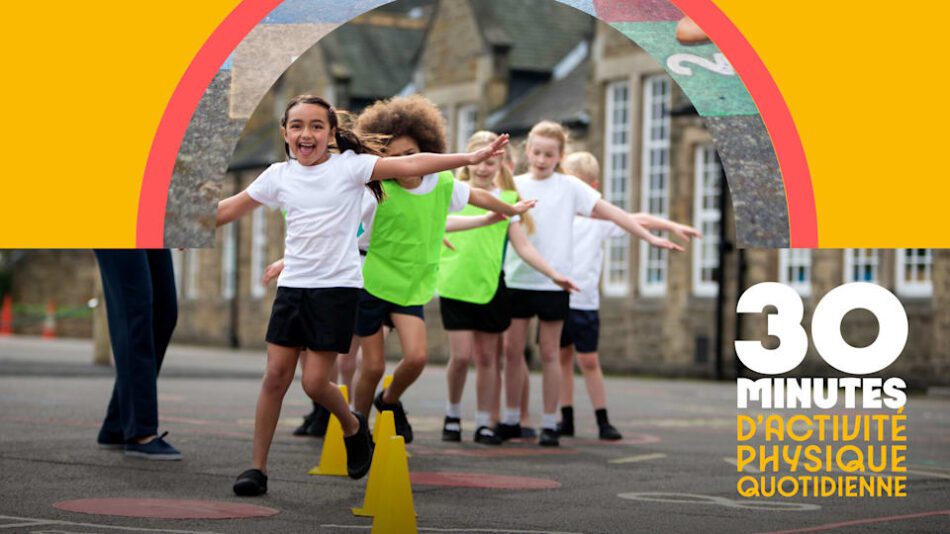
IOC
15 March 2024 – With just over 100 days to go before the first athletes take to the Olympic stage at Paris 2024, the benefits already achieved by the Games for the people of Paris, France and beyond are being celebrated.
Representatives from all levels of government, the Paris 2024 Organising Committee, the IOC, the World Health Organization (WHO) and the public came together for the Paris 2024 Forum with the aim of taking stock of the six-year mobilisation for the Games.
The Forum celebrated possibly one of the greatest Paris 2024 legacies – the positive changes that sport and physical activity have brought to the lives of French citizens. The measures, put in place through various initiatives linked to the Games, target schools, workplaces, cities and groups often excluded from sport and society, such as people with disabilities or from deprived backgrounds.
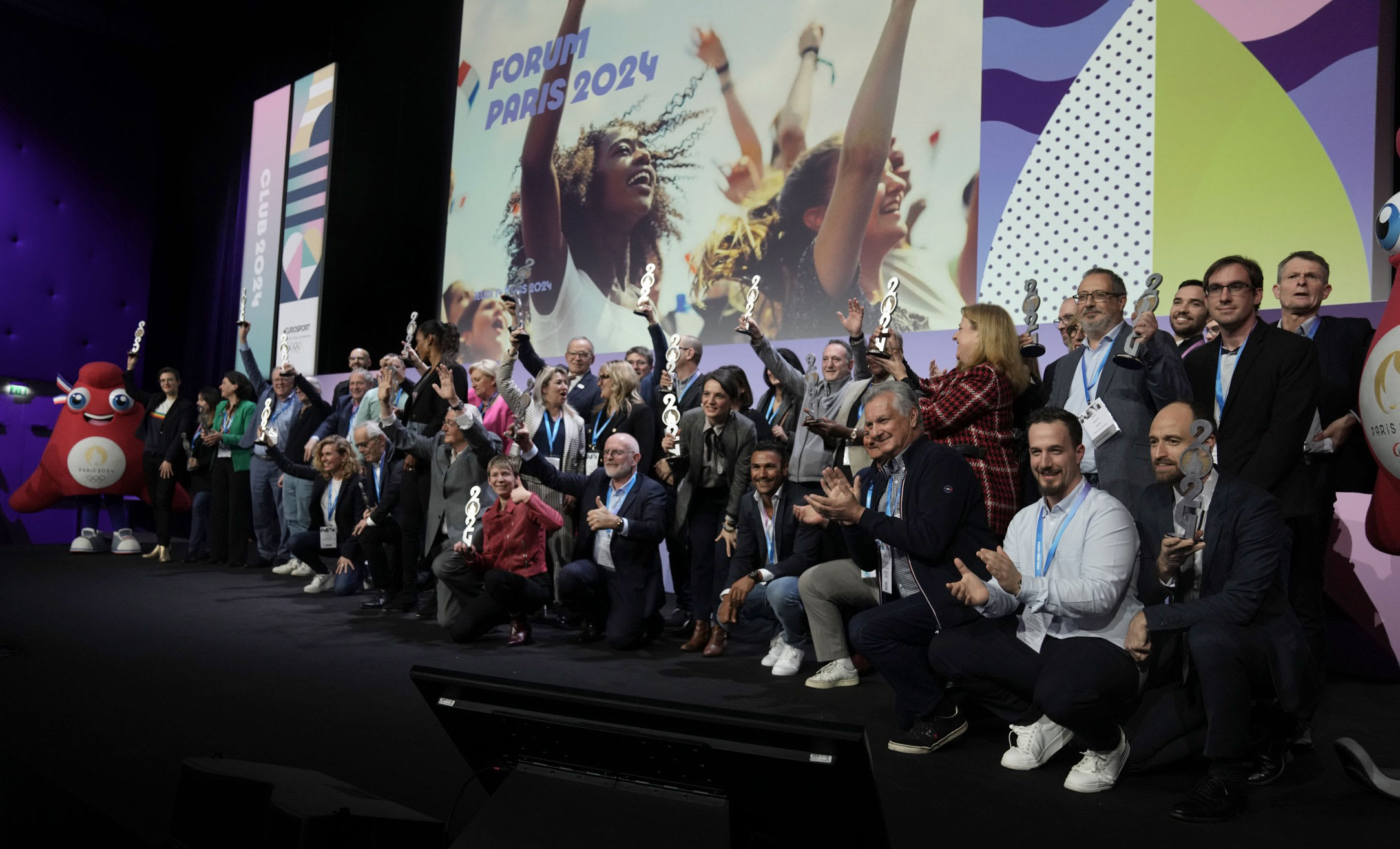
Moving more at school
Primary schools in Seine-Saint-Denis were among the first to introduce at least 30 minutes of daily physical activity for pupils aged 6 to 11. Since the start of the 2022-23 school year, the exercise period has been rolled out nationally so that all 36,800 schools will participate. In an independent study (validated by WHO), 94 per cent of teachers reported an improvement in children’s well-being, along with other benefits such as improved attention and concentration.
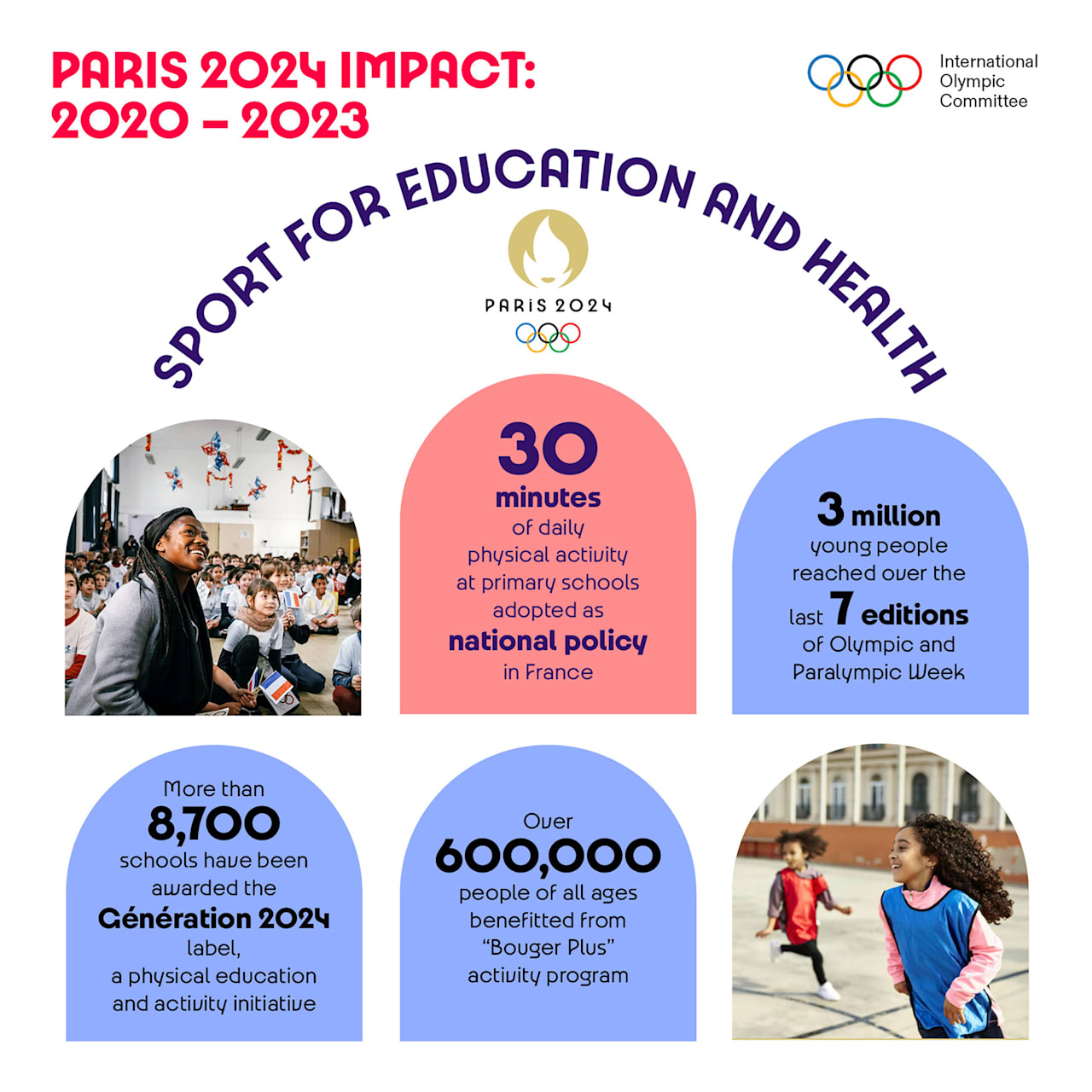
In cities
Paris 2024 has also promoted “active design” in town planning across the country, led by six pioneer municipalities. A demonstration project in Saint-Dizier, in northeast France, showed how simple prompts like signs on stairs and painted lines on the ground have encouraged 71 per cent of residents to walk more. More than half (57 per cent) say they have used newly designated “athletics corridors”. The National Sports Agency and other partners have pledged EUR 1 million for more sporting routes. As part of a EUR 300 million government plan, EUR 30 million will fund the redesign of school playgrounds to encourage girls and boys to exercise more and together. Following a successful experiment in 2023, with 200 school playgrounds renovated thanks to the support of the Ministry of Sport and the Olympic and Paralympic Games, 1,500 school playgrounds will be transformed as part of the government’s new “5,000 facilities – Generation 2024” plan for the period 2024-26.
At work
More than 200,000 employees of companies partnering the Games have benefited from activities to promote the practice of sport in their companies, thanks to the challenge initiated by Paris 2024, Gofor30. A sedentary lifestyle affects 40 per cent of people, 70 per cent of whom are women. Evaluation of the #GoFor30! campaign showed that the use of stairs rather than escalators rose by 43 per cent. On the Games construction sites, warm-up sessions were introduced to one out of every two workers, helping to reduce the accident rate by a factor of four. The Plaine Commune region is now rolling out the scheme on its own sites.
Other initiatives
In line with the reforms of Olympic Agenda 2020 to bring lasting benefits to host communities, Paris 2024 is also promoting a more inclusive society for people with disabilities. Beginning with 40 sports clubs in Paris, support has been provided to widen access to their facilities. This year the partnership will involve more than 3,000 clubs nationally.
In Saint-Denis, where half of 11-year-olds could not swim, Paris 2024 recruited qualified trainers and provided free swimming and water safety lessons for all ages. The 1,2,3 Swim! programme was extended across France in 2023 to more than 26,000 children.
Thanks to the Paris 2024 Endowment Fund created in 2019, Paris 2024 and its co-financers have supported more than 1,100 social projects to the tune of EUR 47.8 million for 4.5 million beneficiaries to encourage the practice of sport by women and people with disabilities, but also to promote the role of sport in education, equality, inclusion and professional integration.
The Paris 2024 legacy will live on in many other ways. The Terre de Jeux partnership with towns across France, for example, has inspired more than 50,000 events and the construction or renovation of sports facilities. Stakeholders in both the public and private sector have committed to continuing their programmes beyond the Games to reach other groups, such as young girls who are less inclined to participate in sports.
IOC President Thomas Bach congratulated Paris 2024 and its partners via a video message to the event’s participants:
“By living up to the promise of Games wide open and mobilising all those involved in sport in France, Paris 2024’s vision has already come to fruition, even before the Games begin. You are leaving your mark on Olympic history. Your many initiatives and activities to promote exercise, education, inclusion, equality and a better environment are already having a tangible impact.”
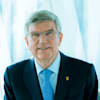
Thomas Bach, IOC President
“You can be proud of what you have achieved so far. But the Games get underway in just a few months. So keep up your engagement and continue working even closer together, united by the same ambition: to start a new chapter in France’s Olympic and sporting history, and to make sure that these Games leave a lasting legacy throughout the nation. After the Games, keep up this commitment and drive to build a better world together through sport, guided by the Olympic motto: Faster, Higher, Stronger – Together.”
According to the World Health Organization (WHO), children should engage in at least 60 minutes of physical activity per day, while adults should do at least 150 minutes throughout the week. But as many as 80 per cent of adolescents and one in four adults do not meet these recommended levels.
Promoting wider sporting and physical activity has been a priority for the organisers since the beginning of the Paris 2024 candidature. Its strategy to get people moving more has progressed from pilot schemes to a nationwide programme and even gone globally.
“The organisers of the Paris Olympics must be congratulated for their commitment to ensuring this year’s showpiece sporting events leave a lasting, positive legacy for the physical and mental well-being of the people of Paris and France,” said Dr Tedros Adhanom Ghebreyesus, WHO Director-General.
“These Games will also serve as an example for people and countries all around the world of what is possible when we leverage the power of sport for public health. WHO is committed to supporting these celebrations of sport and health to be more than just successful events, but to demonstrate the importance of physical activity, mental health and health for all.”
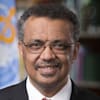
Dr Tedros Adhanom Ghebreyesus, WHO Director-General
Promoting better health and well-being and increasing access to sport is at the heart of the IOC’s strategic roadmap, Olympic Agenda 2020, which aims to ensure the Olympic Games adapt to their hosts and create lasting benefits to local communities. Games organisers are encouraged to deliver plans for long-term physical activity and sport for all before, during and after the Olympic Games. Host cities therefore use the Games as a catalyst to increase access to physical activity and recreational sport, and improve their facilities.
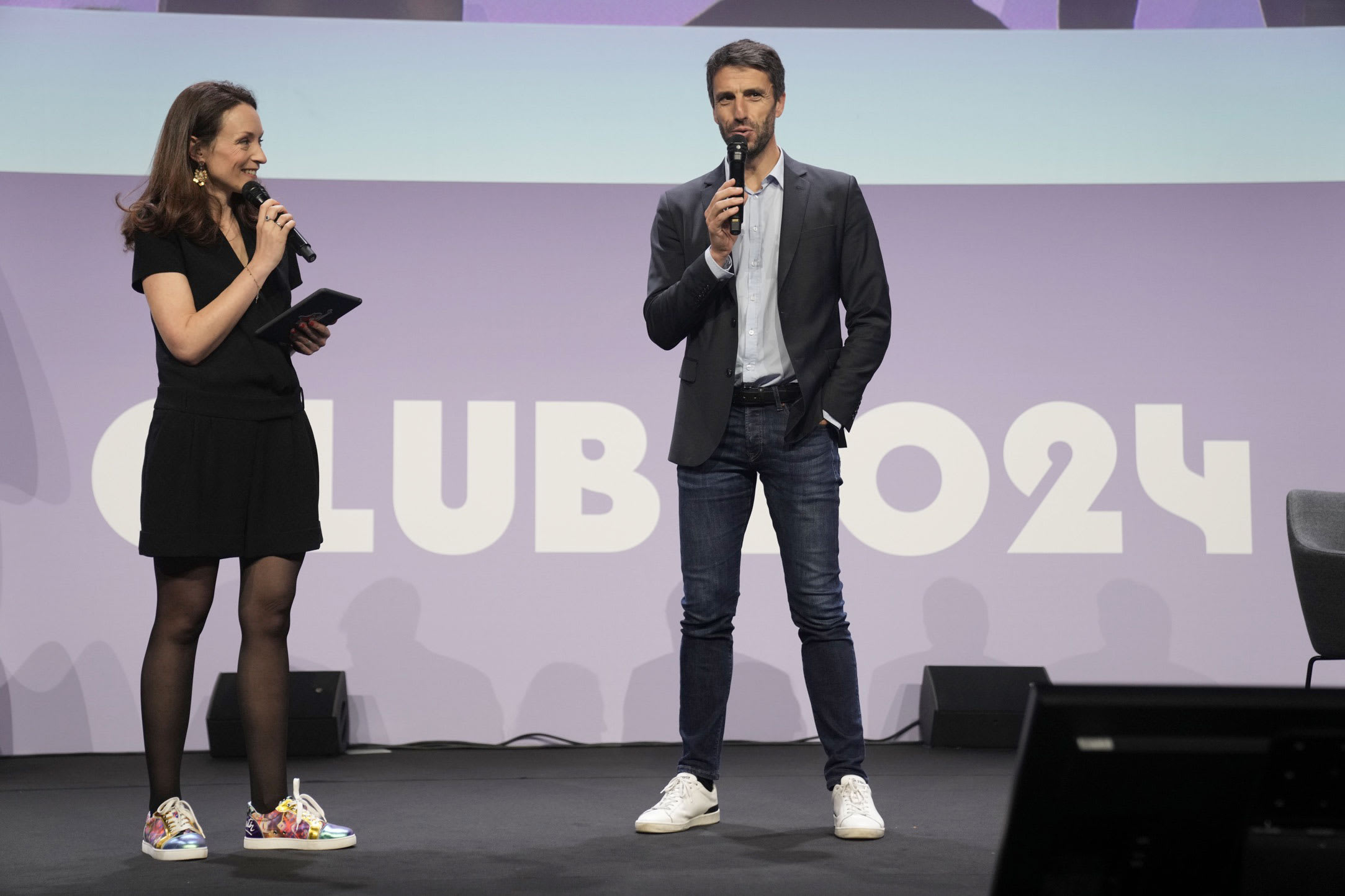
Paris 2024, the first Olympic Games fully aligned with Olympic Agenda 2020, shows how these principles are put into action, breaking the patterns of sedentary lifestyles and bringing sport into daily lives with simple measures.
“It’s because we believed that sport changes lives that we decided to open the Games as wide as possible. Paris 2024 is a starting point, incubating, testing and accelerating programmes, which we hope will endure and continue to grow.”
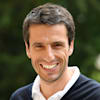
Tony Estanguet, Paris 2024 President
“You can be proud of the way you have leveraged the ability of the Olympic Games to unite people across political divides and with their own interests to make the Olympic Games Paris 2024 beneficial for the French people and the Olympic Movement,” said Marie Sallois, IOC Director for Sustainability, speaking at the Paris 2024 Forum. “The IOC will continue to work alongside the National Olympic Committees and the host territories after the Games to ensure that the legacy continues.”
Now is the time to make it happen. Our motto – “Faster, Higher, Stronger – Together” – is more “relevant than ever.”

Marie Sallois, IOC Director for Sustainability





